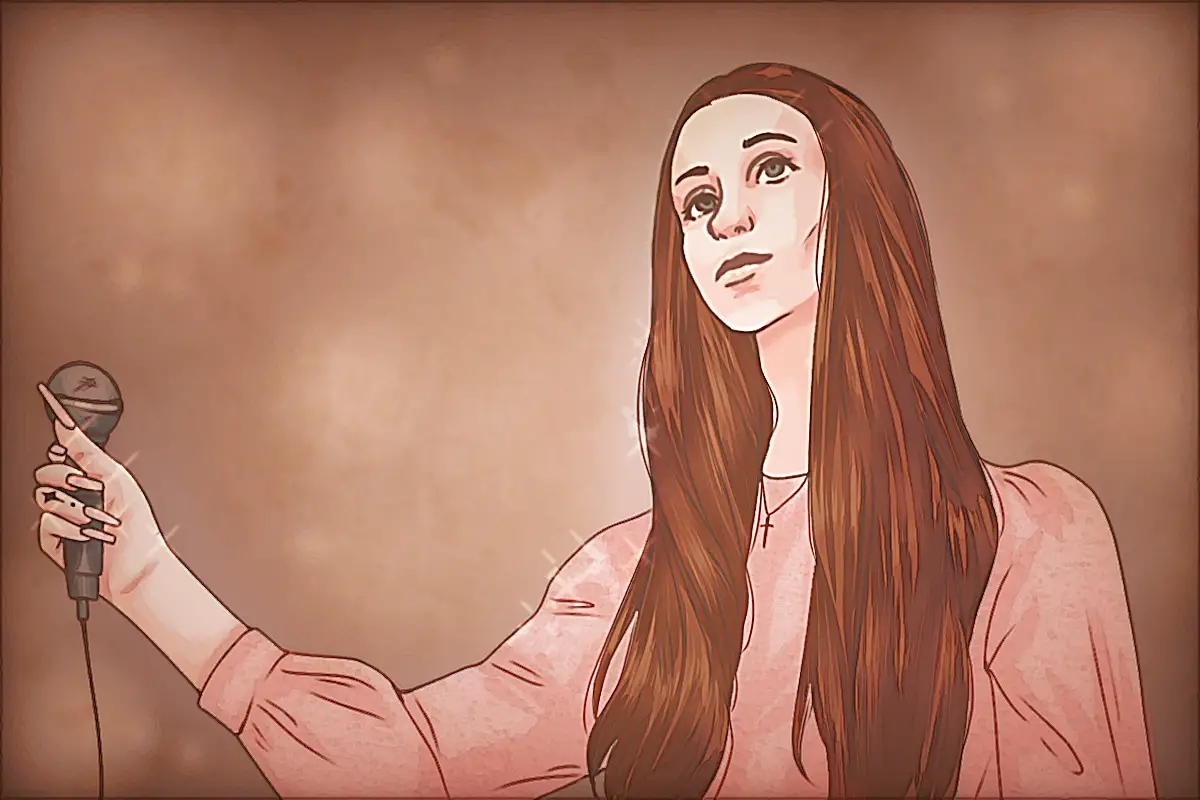CW: Sexual Abuse, Death
Ethel Cain’s album “Preacher’s Daughter” follows Ethel Cain’s life and eventual death from continual abuse. This album perfectly portrays how trauma in adolescence can negatively affect a person in the future because Ethel Cain’s demise can be linked back to her childhood trauma due to her father’s abuse.
Ethel Cain is the fictional protagonist and stage name of Hayden Silas Anehedönia’s 2022 album “Preacher’s Daughter.” The album follows the life and death of Ethel Cain (whom Anehedönia occasionally embodies for interviews) as she navigates her new life away from her hometown and the rise and fall of relationships.
“Family Tree (Intro),” introduces listeners to Ethel and her father, highlighting the strained relationship between the two, especially in the closing lyrics:
“Swinging by my neck from the family tree / He’ll laugh and say, ‘You know I raised you better than this’ / Then leaving me hanging, so they all can laugh at me.”
Her father says that he expected better from her while at the same time leaving her to be mocked by everyone else. In both this track and its lengthier companion,“Family Tree,” the lyric “These crosses all over my body / Remind me of who I used to be.” This lyric symbolizes early on in the album that Ethel Cain carries the sins of her past actions with her. However, she is also constantly carrying the sins that others have inflicted upon her. This sets the tone of the album by explaining that she is unable to escape her past, which affects her future.
The main story begins with the third track on the album, “A House In Nebraska.” In this song, Ethel Cain reminisces about a past relationship, which introduces another important male figure who has betrayed her in some way. In the very next track, “Western Nights,” Cain has found a new boyfriend, to whom she is very loyal despite his dangerous and violent tendencies. However, she ends up losing him as well, leaving yet another hole in her life.
The sixth track on the album, “Hard Times” provides further context into Cain’s childhood. In the lyrics “Hide me there, under the leaves / Nine going on eighteen, lay it on me,” and later,“I was too young to notice / That some types of love could be bad,” Cain describes the sexual abuse that she endured in her childhood from her father.
In the next track, “Thoroughfare,” Ethel Cain enters a new relationship. While on a road trip with him, she declares, “‘Cause for the first time since I was a child, I could see a man who wasn’t angry.” Ethel Cain has seemingly found a kind and gentle man, unlike other important male figures in her life. However, she soon realizes that this is not the case. In “Gibson Girl,” this new man introduces her to a new way of life, one filled with sex and drugs. She sees this as a chance to rebel against her previous way of life. However, the story sours as this man begins drugging and abusing her.
In track nine “Ptolemaea,”Ethel Cain’s new boyfriend brutally murders her. The next two tracks, “August Underground” and “Televangelism” are instrumentals, commonly interpreted as a description of Cain’s death and her entering the afterlife.
The penultimate “Sun Bleached Flies” follows Cain, reflecting on her life and the decisions that she made leading up to her death. The song closes with the lyrics “I can’t let go when something’s broken / It’s all I know and it’s all I want now.” Abuse and broken relationships are all that Ethel has known,from her father’s abuse in her childhood to her final lover. Because that is all that she knew, it was hard to let go of a relationship that she knew was broken.
The album closes with “Strangers,” where Ethel Cain sings of her murderer and how he eventually cannibalized her body. Cain repeats the lyrics “Am I making you feel sick?” which refers both to a question as to whether her murder made him feel sick, but also to whether he feels sick due to cannibalism.
This album contains a lot of twists and turns in the story as well as many themes represented throughout. The biggest theme that was explored was Cain’s trauma which started at a young age with her father and the sexual abuse that she had to endure from him. This abuse continued throughout her life in other relationships she was in until one of those relationships caused her eventual death. In “Sun Bleached Flies,” Ethel Cain admits that she would stay in these abusive relationships because it was all she had ever known. Also, in the song “Hard Times,” she repeats the lyrics “Too tired to move, too tired to leave.” She was so exhausted from the abuse and so deep into the relationship that she couldn’t make herself leave.
How Childhood Traumas Affect Adulthood
The exploration of this fictional character’s trauma creates an interesting and important conversation around the topic of childhood trauma. The abuse inflicted upon Ethel Cain at a young age is the reason why she ended up in abusive relationships, unable to escape them, which led to her eventual demise at the hands of one of her abusers. This story is fictional, but the events that happen can be seen in real life.
In an overview of the research done on childhood trauma by the National Library of Medicine, they explain the long-term effects of this trauma and how it affects adulthood. They study found that survivors of abuse in their childhood are more likely to partake in risky activities as they age, such as substance abuse and “high-risk sexual behaviors.” These consequences can be seen in the story of Ethel Cain as she chases rebellion to escape her previous life from her father and her hometown.
However, many things are not discussed in the album “Preacher’s Daughter.” Neglect and abuse in early childhood can result in underdeveloped learning and emotional capabilities, aggression, depression, anxiety, and PTSD, and they can be more easily susceptible to illnesses. The list of consequences of abuse in childhood is extensive, and it is all due to the stunt of development in infancy and childhood. In another study done by the National Library of Medicine, they describe the first years of childhood to be the most important to humans as the brain is developing. During these years, “…if specific experiences fail to occur within some narrow window of time (or the wrong experiences occur), development can go awry.” Neglect and abuse in these years, and for the rest of the person’s childhood, severely affects their mental and physical health as they age because it disrupts the maturing of their brain.
Overall, albums such as “Preacher’s Daughter” create a much-needed conversation about childhood trauma affecting individuals as they reach adulthood. Although this album does not cover every aspect of the consequences of abuse and neglect, it provides a starting point for some who wish to learn more about long-term effects.

















